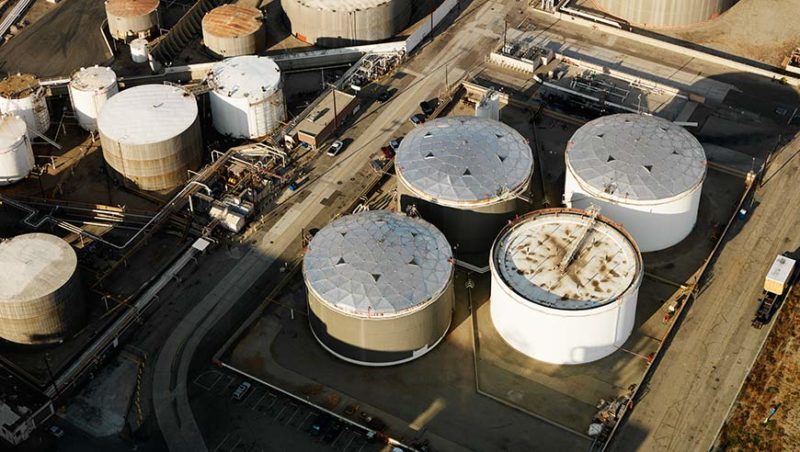Australia’s struggling fuel refineries will be propped up by the Morrison government in a multi-billion dollar handout that will see Australia hooked on petrol vehicles, while the federal government continues to snub the fledgling electric vehicle industry.
The Morrison government will provide more than $2.3 billion in subsidies to Australian based oil refineries through a new Fuel Security Service Payment that will top up the revenues they receive when fuel prices drop below a certain threshold.
The measure is designed to keep Australian fuel refineries open, which have seen their profits squeezed as a result of competition from much larger and lower cost mega-refineries being established throughout Asia and the Middle-East.
The subsidy package includes a Fuel Security Service Payment that effectively guarantees minimum revenues for refineries and with payments amounting to as much as $2.047 billion over the next decade.
An additional $302 million will be provided to refineries to fund equipment upgrades to enable the production of higher quality fuels – particularly addressing the sulfur content of Australian produced fuels.
Announcing the details of the package on Monday, prime minister Scott Morrison said the funding for upgrades at the Ampol refinery in Queensland, and the Viva Energy refinery in Geelong, would improve fuel quality and reduce the health costs of air pollution.
“Earlier investment in Australia’s ability to produce better quality fuels, including ultra-low sulfur levels, will also improve air quality and deliver an estimated $1 billion in lower health costs,” Morrison said.
It raises the question of why the investments in improving fuel quality weren’t undertaken earlier, given the impact that Australia’s poor fuel standards have had on air pollution and a growing number of major vehicle manufacturers that have withheld new models from the Australian market.
The $2.3 billion in fuel subsidies was set aside, but not detailed, in the recent federal budget handed down last week, which included no new support measures for electric vehicles or other zero emissions transport infrastructure.
Local fuel refineries have held off from making necessary improvements to refining equipment, as the cost of such upgrades was difficult to justify for facilities that were already struggling to remain profitable. Two refineries have closed since October last year, with BP and ExxonMobil both closing Australian facilities.
The subsidy package focuses on providing government support to Australian fuel refineries to remain open through to the mid-2030s. To justify this funding, the Morrison government will also cover the cost for upgrades at the refineries to improve fuel quality – but the focus of the policy is to keep Australians using petrol fuels for longer.
Federal energy and emissions reduction minister Angus Taylor conceded as much in an interview with ABC Radio National on Monday morning.
“Jobs are important, but national security is the overriding consideration here because if we don’t have access to liquid fuel, the country can’t keep moving. I mean, liquid fuel keeps our economy moving. And it’s absolutely essential for so many parts of our lives. If we don’t have access to it, we have a very, very serious problem,” Taylor said.
“It is essential now that we have our remaining two refineries that can then process our locally produced crude oil and in an emergency situation can keep the economy going,” Taylor added.
Curiously, the plan will also provide refineries with a role in guiding the roll-out of electric vehicle infrastructure. It is unclear why this needs to be the case, and it could present a serious conflict of interest between refineries reliant on the sale of petrol and diesel fuels.
“The Government will work with both refineries on their plans to consider future fuel technologies and other development opportunities. This will include the refineries’ roles in the roll-out of future fuels, such as electric vehicle charging and hydrogen transport infrastructure,” the statement released by prime minister Scott Morrison says.
The package belies the opportunities being created through the shift to electric vehicles, which provide a means to both improve Australia’s fuel security by reducing reliance on imported fuels, as well as addressing air pollution and greenhouse gas by potentially avoiding them entirely.
The Australia Institute’s climate and energy program director, Richie Merzian, said that it was absurd that the Morrison government was committing funding under the guise of fuel security while ignoring the potential of electric vehicles.
“Spending over $2 billion on a stop gap measure that does nothing to address Australia’s growing dependency on foreign oil is absurd. Australia needs demand-side solutions, including the electrification of vehicles which – notably — did not receive a single cent in this year’s budget,” Merzian said.
“One has to wonder the Government’s motives when the electric vehicle industry needs to stand on its own two feet, however, when it comes to oil refineries, it is suddenly considered a matter of national security.”
Motor industry analysts have long flagged the prospect of Australia becoming a dumping ground for high polluting vehicles, with some vehicle manufacturers suggesting they would withhold models from the Australian market.
While Morrison government has also committed to ‘accelerate’ a review of Australia’s fuel standards, aiming to establish an Australian equivalent of the Euro-6 standard – it appeared to stop short of committing to implement the Euro-6 standard directly and will introduce an ‘Australian appropriate’ equivalent standard.
The Morrison government will push to have the new Fuel Security Service Payment regime legislated before 1 July 2021.


